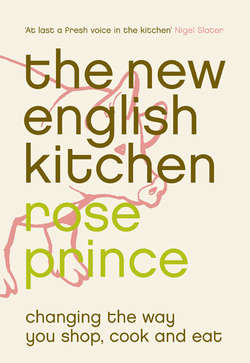Читать книгу The New English Kitchen: Changing the Way You Shop, Cook and Eat - Rose Prince - Страница 10
bread in society
ОглавлениеWhen I criticised sliced and wrapped bread in a newspaper for the first time, it provoked a reaction from the industry that both surprised and annoyed me. Their letters of complaint did not exactly defend their process; instead, they justified it by saying that it ‘allowed everyone to eat cheap white bread’. This polemic takes us back over 140 years, when refined white bread had status. The upper classes ate white bread, the poor could afford only the rough, wholegrain type. Flour was ground between stones and then painstakingly sifted to remove the wheatgerm, leaving the flour pure and white – an expensive process.
Then roller mills were invented and suddenly white flour was cheaper to produce. The china rollers removed the brown (good) bits in the flour efficiently. This flour was the forerunner of our modern sliced and wrapped bread. It did indeed give cheap white bread to the poor, but I find it sickening that the modern industry is still arguing that this is the point of high-speed mechanisation. I believe that what it is really saying is: ‘You’re poor, so you get bread with additives, too much yeast, and no flavour; its integral goodness has been milled out, artificial vitamins have been added to replace it – but you can lump it because you are eating white bread, you lucky people.’
Food snobbery is alive and well, sadly. And highly divisive. There is still one form of nutrition for one group in society and one for another. What can you say in a country that still has two different words for the meal eaten in the middle of the day?
Mechanised breadmaking is no longer about feeding everyone white bread; it is about profit. It is about producing more for less, faster – and to hell with breadmaking tradition. But breadmaking, just like winemaking or rearing a beef steer naturally, is a slow process that yields results that are worth the wait. The recipes in this chapter help to solve the problem of how to afford good bread. They show that bread can be made inexpensively and retain its integrity, and they also show how to use every last crumb. This is bread for all.
